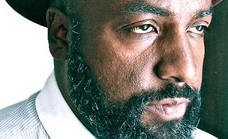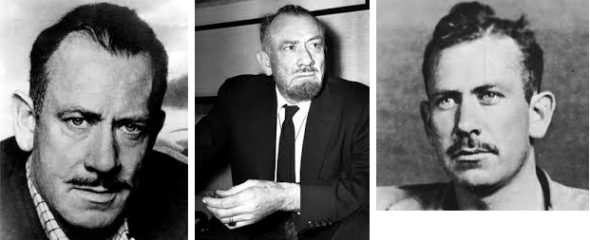“On the whole, men are more good than bad; that, however, isn’t the real point. But they are more or less ignorant, and it is this that we call vice or virtue; the most incorrigible vice being that of an ignorance that fancies it knows everything and therefore claims for itself the right to kill. The soul of the murderer is blind; and there can be no true goodness nor true love without the utmost clear-sightedness.” (sans toute la clairvoyance possible) ~ Albert Camus from one of the more memorable passages of The Plague, in which he addresses the volunteer sanitary groups put together by citizens to clean the town’s overloaded hospitals.
Land of Plenty Leonard Cohen quotation
“For the millions in a prison
That wealth has set apart—
For the Christ who has not risen,
From the caverns of the heart
For the innermost decision
That we cannot but obey
For what’s left of our religion,
I lift my voice and pray;
May the lights in the land of Plenty
Shine on the truth someday.”
The masks we wear, inside and out
I started writing something about the masks we wear and this quotation from James Baldwin popped up in my email today:
“Love takes off the masks we fear we cannot live without and know we cannot live within.” ~ James Baldwin
Are the your dragons really princes and princesses?
“Perhaps all the dragons in our lives are princesses who are only waiting to see us act, just once, with beauty and courage. Perhaps everything that frightens us is, in its deepest essence, something helpless that wants our love.” ~ Rainer Maria Rilke, Letters to a Young Poet
British-Trinidadian dub poet Roger Robinson wins TS Eliot prize
 Roger Robinson, the British-Trinidadian dub poet, has won the prestigious TS Eliot prize on his first nomination for his collection A Portable Paradise.
Roger Robinson, the British-Trinidadian dub poet, has won the prestigious TS Eliot prize on his first nomination for his collection A Portable Paradise.
The only poetry award judged solely by established poets, the £25,000 TS Eliot prize has been described by the former poet laureate, Sir Andrew Motion, as “the prize most poets want to win”.
Source: British-Trinidadian dub poet Roger Robinson wins TS Eliot prize | Books | The Guardian
‘It seems to me we’re all just beginners at love’ (with apologies to Raymond Carver)
One of the more beautiful passages of writing I’ve read recently:
Outside in the backyard, one of the dogs began to bark. The leaves of the aspen that leaned past the window ticked against the glass. The afternoon sun was like a presence in this room, the spacious light of ease and generosity. We could have been anywhere, somewhere enchanted. We raised our glasses again and grinned at each other like children who had agreed on something forbidden.
~ From Raymond Carver’s
“What We Talk About When We Talk About Love”
A favorite:
“I arise in the morning torn between a desire to improve the world and a desire to enjoy the world. This makes it hard to plan the day.” ~ E.B. White
On Listening Completely
“When people talk, listen completely. Don’t be thinking what you’re going to say. Most people never listen. Nor do they observe. You should be able to go into a room and when you come out, know everything that you saw there and not only that. If that room gave you any feeling you should know exactly what it was that gave you that feeling. Try that for practice.” ~ Ernest Hemingway
Where I’ll Be | by cjzurcher
You can find me where we walked,
Among the trees and birds and deer and other more stealthy critters,
Where we muddied our wheels and soles,
Along the water flying kites or drinking sunset wine.
In the lakes, reservoirs, the Sound, the oceans
Where we swam and drowned our sorrows,
You can find me in all the places that touched our souls together, Continue reading “Where I’ll Be | by cjzurcher”
Foliage rainbows
 Alongside a country road an early riser maple tree turns its autumnal red sooner than most. Among the red, yellow, orange and green, is a background of blue sky. The near rainbow complete yet incomplete makes the case that nature has put the other colors of the rainbow that the healthy human eye can see — ROYGBIV (red, orange, yellow, green, blue, indigo and violet) — somewhere in the leaves
Alongside a country road an early riser maple tree turns its autumnal red sooner than most. Among the red, yellow, orange and green, is a background of blue sky. The near rainbow complete yet incomplete makes the case that nature has put the other colors of the rainbow that the healthy human eye can see — ROYGBIV (red, orange, yellow, green, blue, indigo and violet) — somewhere in the leaves
if we just look close enough
but only the luckiest do.
Advice to a budding musician
 The more we play, the more we become the instrument and the less it feels like an instrument and the more it becomes an extension of ourselves and the more the music becomes an expression of us and the less it sounds like an instrument we are playing and the more it sounds like something we are part of — a body we have joined in which to rejoice almost as a parishioner in a church, or a congregation, minister, and choir. Our fingers become the ripples in the water rather than merely the things making waves. The sound a reflection of the trees in the water rather than a leaf floating upon it. Musician, score, instrument, sound become one.
The more we play, the more we become the instrument and the less it feels like an instrument and the more it becomes an extension of ourselves and the more the music becomes an expression of us and the less it sounds like an instrument we are playing and the more it sounds like something we are part of — a body we have joined in which to rejoice almost as a parishioner in a church, or a congregation, minister, and choir. Our fingers become the ripples in the water rather than merely the things making waves. The sound a reflection of the trees in the water rather than a leaf floating upon it. Musician, score, instrument, sound become one.
Rachel Carson’s groundbreaking book Silent Spring was published on this date in 1962 | The Writer’s Almanac
Rachel Carson’s groundbreaking book Silent Spring was published on this date in 1962 (books by this author). Carson was a marine biologist, but she was also a crafter of lyrical prose who contributed to magazines like The New Yorker and Atlantic Monthly, and who had already published three popular lyrical books about the sea. One of these — The Sea Around Us (1951) — had won the National Book Award. In the course of her work, Carson became aware of the ways that chemical pesticides were harming plants and wildlife. She felt it was important to make the public aware of this, but she was not an investigative journalist and didn’t feel confident enough to write what she called the “poison book.” Continue reading “Rachel Carson’s groundbreaking book Silent Spring was published on this date in 1962 | The Writer’s Almanac”
[Memento Mori] | John Ashbery (1927–2017) | Harper’s Magazine
 Over the weekend, Pulitzer Prize winning poet John Ashbery passed away at the age of 90. “Part of what makes Ashbery so absurdly good is his faith in the essential goodness of the absurd,” wrote Matthew Bevis in the June 2017 issue of Harper’s Magazine. “He’s one of our most truly encouraging poets on account of his willingness to let himself go, to let the social self (call it ‘character’ or ‘personality’) deliquesce into the anarchic, labile, inner chemistry of selfhood.” Below is a selection of Ashbery’s work, which began appearing in Harper’s in 1969.
Over the weekend, Pulitzer Prize winning poet John Ashbery passed away at the age of 90. “Part of what makes Ashbery so absurdly good is his faith in the essential goodness of the absurd,” wrote Matthew Bevis in the June 2017 issue of Harper’s Magazine. “He’s one of our most truly encouraging poets on account of his willingness to let himself go, to let the social self (call it ‘character’ or ‘personality’) deliquesce into the anarchic, labile, inner chemistry of selfhood.” Below is a selection of Ashbery’s work, which began appearing in Harper’s in 1969.
• “Absent Agenda,” October 2010
• “The Water Inspector,” February 2000
Source: [Memento Mori] | John Ashbery (1927–2017) | Harper’s Magazine
You said ‘who’ invented terrorism?
“This country has dangled the sword of nuclear holocaust over the world for more than half a century and claims that someone else invented terrorism.”
Paraphrased from “If Not Empire, What?: A Survey of the Bible” by Berry Friesen and John K. Stoner
Happy Birthday to Robert Stone
According to today’s Writer’s Almanac, Stone wrote:
“Writing is lonely. […] But most of the time you are in a room by yourself, you know. Writers spend more time in rooms, staying awake in quiet rooms, than they do hunting lions in Africa. So, it’s a bad life for a person because it’s so lonely and because it consists of such highs and lows, and there’s not always anywhere to take these emotional states. […] It’s a life that’s tough to sustain without falling prey to some kind of beguiling diversion that’s not good for you.”
Can you relate?
Happy Birthday John Steinbeck
It’s the birthday of John Steinbeck. See The Writer’s Almanac for Feb. 27 for more details. 
In Chapter 17 of The Grapes of Wrath, he wrote
The cars of the migrant people crawled out of the side roads onto the great cross-country highway, and they took the migrant way to the West. In the daylight they scuttled like bugs to the westward; and as the dark caught them, they clustered like bugs near to shelter and to water. And because they were lonely and perplexed, because they had all come from a place of sadness and worry and defeat, and because they were all going to a new mysterious place, they huddled together; they talked together; they shared their lives, their food, and the things they hoped for in the new country. Thus it might be that one family camped near a spring, and another camped for the spring and for company, and a third because two families had pioneered the place and found it good. And when the sun went down, perhaps twenty families and twenty cars were there.
In the evening a strange thing happened: the twenty families became one family, the children were the children of all. The loss of home became one loss, and the golden time in the West was one dream.
Yusef Komunyakaa, Poetry Reading 4 p.m. Thursday, Feb. 23
Where: Beinecke Rare Book & Manuscript Library, 121 Wall St., New Haven
Yale Collection of American Literature Reading Series
Celebrating the 75th Anniversary of the James Weldon Johnson Memorial Collection
Celebrated for his powerful and carefully crafted poems, Komunyakaa has been awarded numerous prizes and honors, including the Pulitzer Prize, Kingsley Tufts Poetry Award, the Ruth Lilly Poetry Prize, and the Louisiana Writers Award. About his work, the poet Toi Derricotte wrote for the Kenyon Review, “[Yusef Komunyakaa] takes on the most complex moral issues, the most harrowing ugly subjects of our American life. His voice, whether it embodies the specific experiences of a black man, a soldier in Vietnam, or a child, is universal. It shows us in ever deeper ways what it is to be human.” The Beinecke Library acquired the papers of Yusef Komunyakaa in 2014.
Contact: [email protected]
Langston Hughes’ birthday today
Today is the birthday of the man known as “The O. Henry of Harlem,” American poet Langston Hughes (1902). In 1926, he was working as a busboy at a hotel in New York City when the poet Vachel Lindsay arrived for dinner. Hughes placed some poems under Lindsay’s dinner plate. Intrigued, Lindsay read them and asked who wrote them. Hughes stepped forward and said, “I did.” And that’s how he came to publish his first volume of poetry, The Weary Blues (1926), at the age of 24.
When asked what he wrote about, Langston Hughes answered, “Workers, roustabouts, and singers, and job hunters on Lenox Avenue in New York, or Seventh Street in Washington or South State in Chicago — people up today and down tomorrow, working this week and fired the next, beaten and baffled, but determined not to be wholly beaten, buying furniture on the installment plan, filling the house with roomers to help pay the rent, hoping to get a new suit for Easter — and pawning that suit before the Fourth of July.”
For more visit www.writersalmanac.org.
Words of wisdom from birthday girl Colette
Today is the birthday of Colette who said
“Sit down and put down everything that comes into your head and then you’re a writer. But an author is one who can judge his own stuff’s worth, without pity, and destroy most of it.”







